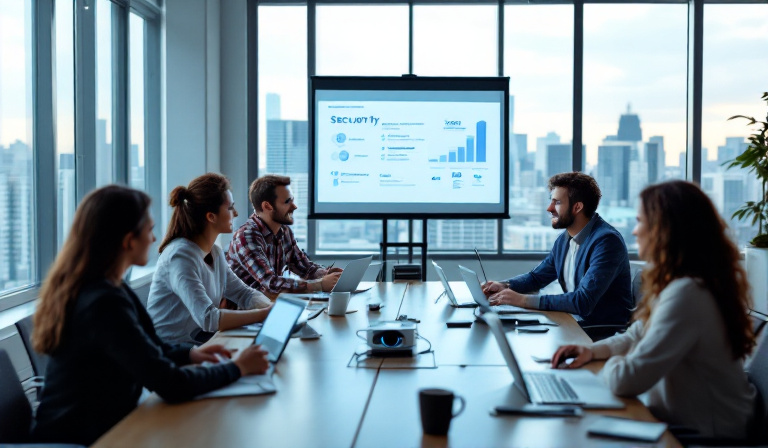
Understanding the Basics of Security
Security is a term that covers a broad spectrum of practices, technologies, and methodologies aimed at protecting assets, people, and information. In today's digital age, the importance of security cannot be overstated. With cyber threats becoming more sophisticated, it's crucial to have a foundational understanding of what security entails, whether you're protecting your home, your business, or your digital identity.
Common Security Concerns and Solutions
When it comes to security, there are several common concerns that individuals and businesses face. Here, we explore these concerns and offer insights from security professionals on how to address them effectively.
1. Cybersecurity Threats
Cybersecurity is a major concern in our increasingly digital world. From phishing attacks to ransomware, the threats are numerous and evolving. To combat these threats, professionals recommend:
- Regular Software Updates: Ensure all your software, including operating systems and applications, are up-to-date to protect against vulnerabilities.
- Strong Password Practices: Use complex passwords and change them regularly. Consider a password manager to keep track of them securely.
- Two-Factor Authentication (2FA): Enable 2FA wherever possible for an added layer of security.
- Employee Training: Regularly train employees to recognize phishing attempts and other online threats.
2. Physical Security
Physical security involves protecting people and physical assets from harm. This includes safeguarding buildings, equipment, and personnel. Key strategies include:
- Access Control Systems: Implement systems like keycards or biometric scanners to control who can enter your premises.
- Surveillance Cameras: Install cameras strategically to monitor activity and deter potential intruders.
- Security Personnel: Employ trained security personnel to manage and respond to security incidents.
- Regular Audits: Conduct regular security audits to identify and mitigate vulnerabilities.
3. Data Protection
Data breaches can have devastating consequences, from financial loss to reputational damage. Protecting sensitive information is critical. Experts suggest the following measures:
- Encryption: Encrypt sensitive data both in transit and at rest to prevent unauthorized access.
- Data Backup: Regularly back up data to secure locations to prevent loss in the event of a breach or hardware failure.
- Access Restrictions: Limit access to sensitive data to only those who absolutely need it.
- Compliance: Ensure compliance with relevant data protection regulations and standards.
Insights from Security Professionals
To gain deeper insights into security, we reached out to professionals in the field. Here are some of their top recommendations:
Embrace a Proactive Approach
"One of the biggest mistakes is being reactive rather than proactive with security," says Jane Doe, a cybersecurity consultant. "By anticipating potential threats and having a plan in place, you can mitigate risks significantly." This involves regular assessments of both digital and physical security protocols to stay ahead of potential threats.
Invest in Employee Education
"Your employees are your first line of defense," notes John Smith, a corporate security advisor. "Investing in regular training and awareness programs can prevent many security mishaps." Educating employees about recognizing suspicious activity and understanding security protocols is essential for maintaining a secure environment.
Utilize Technology Wisely
"Technology is a double-edged sword," warns Lucy Liu, a technology strategist. "While it can enhance security, relying too heavily on technology without proper checks can lead to vulnerabilities." Liu advises integrating technology with human oversight to ensure a balanced and effective security strategy.
The Importance of Continuous Improvement
Security is not a one-time task but an ongoing process. It requires continuous improvement and adaptation to emerging threats. Regularly reviewing and updating security measures is crucial for staying protected. Here are some steps to ensure continuous improvement:
- Stay Informed: Keep abreast of the latest security threats and trends in the industry.
- Conduct Regular Reviews: Periodically assess your security measures for effectiveness and compliance.
- Engage with Experts: Don't hesitate to consult with security experts for tailored advice and solutions.
- Test Your Systems: Regularly test your security systems to ensure they work as intended, including conducting drills and simulations.
Conclusion
Security is an integral part of both personal and professional life. Understanding the potential threats and having a robust strategy in place can make all the difference. By taking proactive measures, investing in employee education, and continuously improving your security practices, you can protect your assets and ensure peace of mind.
Remember, security is a journey, not a destination. Stay vigilant, stay informed, and stay secure.

